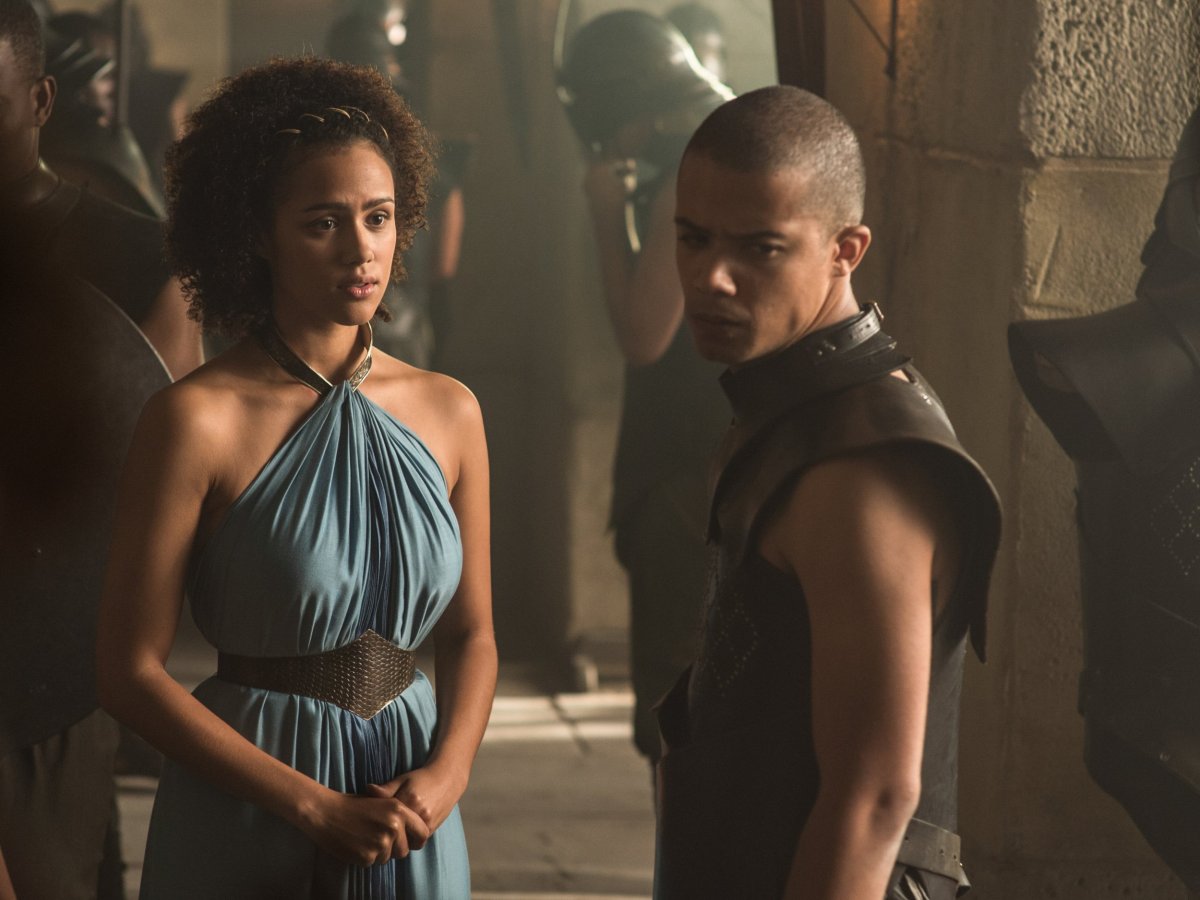Bravo (or should that be Braavos?), John Boyega, for saying what so few are willing to say: Game of Thrones has a diversity problem.
That pains me to write because, in my opinion, Game of Thrones is the greatest television show on the planet. I am such a huge fan that I somehow wangled my way into getting paid to write about it for Newsweek. I have been deep in the trenches with the Starks for six long seasons, in which I mourned Robb and Catelyn like they were my own family, and whooped and hollered at Daenerys Targaryen's progression from naïve young girl to fierce warrior queen.
But Boyega's comments bring to the forefront what I've felt for some time: Where is the color in Game of Thrones?
"There are no black people on Game of Thrones," Boyega told GQ recently. "I ain't paying money to always see one type of person on-screen. Because you see different people from different backgrounds, different cultures, every day. Even if you're a racist, you have to live with that. We can ruffle up some feathers."
I appreciate the Boyega's commitment to abstaining from entertainment that presents a narrowed, white narrative. Sadly, when it comes to Game of Thrones, I am much too weak to stay away. But I concur with his sentiment.
Game of Thrones is set in a fantasy world that can conjure up dragons, faceless men and people coming back from the dead. Yet it can't imagine people of color, whether black, brown or otherwise, in roles that are equal to Daenerys, Jon Snow or Cersei Lannister?
I understand, for example, in the case of the Lannisters, their fair-skinned, ultra-blond-haired and blue-eyed appearance is necessitated by George R.R. Martin's A Song of Ice and Fire novels (the Lannisters inbreed to keep their bloodline "pure"), but I am troubled by the fact all of the great houses—from which most of the main characters hail from—are white. Unlike a period drama, such as the hit series Downton Abbey, set in the early 1900s, there is no historical logic for such a white cast. Game of Thrones shares some resemblance to medieval England, but that is no reasonable excuse: Westeros is still a make-believe place.
Related: Watch the teaser trailer for "Stormborn," the next "Game of Thrones" episode
The Game of Thrones ensemble is phenomenal, and what casting director Nina Gold has achieved—discovering the likes of Emilia Clarke and Maisie Williams to name just two actors—deserves a lot of credit. However, in seven seasons and 61 episodes (so far) the number of memorable characters played by minority actors is still low when compared with the vast number of key characters played by white actors. It should be noted that Gold was also responsible for casting Boyega in Star Wars: The Force Awakens, a piece of colorblind casting that has helped bring that stalwart sci-fi franchise into the 21st century and better reflect the modern world. So why not on Game of Thrones?

The only two characters of any real consequence to the plot that are played by black actors and still alive are Daenerys loyalists Missandei, played by Nathalie Emmanuel, and Unsullied commander Grey Worm, played by Jacob Anderson. Grey Worm is a fierce warrior, sure, but he and Missandei are both subservient to a white woman with nobility. To an impressionable young viewer of color, that kind of representation only serves to reinforce what many of us from minorities already feel: that we are lesser, that we have a certain station in life.
Game of Thrones has only 12 episodes left—most of which have already been shot—so it's unlikely the show will rectify its diversity issue in its eighth and final season (and if it did, it would feel like tokenism). But there's a lesson to be learned by television producers hoping to fill the void when the show ends: There's a place for diversity in all entertainment—especially if there's a place for dragons.
Tufayel Ahmed is Newsweek's culture reporter and resident Game of Thrones correspondent. He can be found tweeting from @tufayel.
Uncommon Knowledge
Newsweek is committed to challenging conventional wisdom and finding connections in the search for common ground.
Newsweek is committed to challenging conventional wisdom and finding connections in the search for common ground.
About the writer
To read how Newsweek uses AI as a newsroom tool, Click here.








